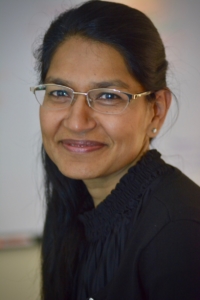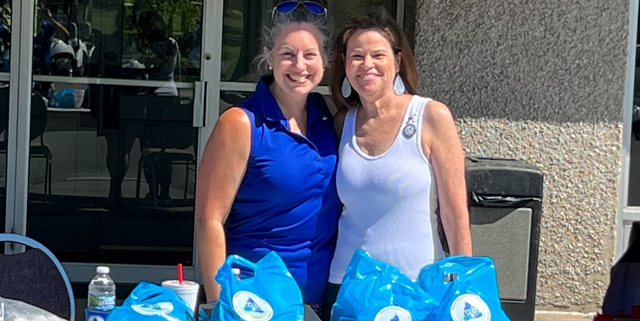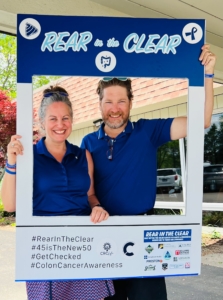Colorectal cancer (CRC) is the third most common cancer diagnosis and the second most common cause of cancer death globally. The American Cancer Society estimates that there will be 106,180 new colon cancer cases and 44,850 new rectal cancer cases in the United States in 2022. Early detection and consistent screening reduce CRC incidence and mortality. A recent randomized controlled trial that analyzed the feasibility, adherence, yield, and related costs of various screening modalities found that a risk-adapted approach is feasible and cost-favorable for population-based screening.
Current guidelines recommend standardized screening plans for specific age groups, with colonoscopy recommended every 10 years and a fecal immunochemical test (FIT) between 1-3 years. Implementation of risk-stratified screening can potentially allow for more frequent screening and earlier detection of CRC at a population level. This would especially be beneficial for individuals who are at higher risk of CRC. Additionally, risk-stratified screening can help health practitioners detect and introduce plans for CRC treatment at earlier stages.
The National Health Service Breast Screening Programme (NHSBSP) recently investigated the potential benefits, costs, and effectiveness of risk-stratified breast cancer screening with BC-Predict, a platform that collects self-reported risk factor information for breast cancer, analyzes the self-reported information, and invites high-risk or moderate-risk women to a conversation about prevention and early detection options. BC-Predict was found to have the potential to reduce breast cancer mortality due to early screening. It also reduced screening in women who are at lower risk, minimizing the number of false positive test results in lower-risk women. The results from this analysis are pertinent to risk-stratified screening for CRC and support the implementation of a risk-adapted approach in CRC screening.
What Did the Study Find?
More than 19,000 participants in the TARGET-C trial conducted in six cities in China were placed into one of the screening arms in a 1:2:2 ratio:
- One-time colonoscopy (n=3,883)
- Annual fecal immunochemical test (FIT) (n=7,793)
- Annual risk-adapted screening (n=7,697).
The detection rate of advanced colorectal neoplasia, CRC, and advanced precancerous lesions were the main outcomes that were monitored. The follow-up to trace the rate of advanced colorectal neoplasia for all participants was conducted over a 3-year study period.
Over three screening rounds, the participation rates for colonoscopy, FIT, and risk-adapted screening arms were 42.4%, 99.3%, and 89.2%, respectively. The costs to the for detecting one advanced neoplasm, presented as both Chinese Yuan (CNY) and US dollar, using a package payment format were:
- CNY6,928 ($1,004) for one-time colonoscopy
- CNY5,821 ($844) for annual fecal immunochemical test (FIT)
- CNY6,694 ($970) for annual risk-adapted screening.
These findings underscore the value of a risk-adapted approach for CRC screening for feasibility and cost-effectiveness, as well as for allowing for more frequent screening and earlier detection of CRC for individuals with a high or moderate risk for CRC.
Sahar Alam is a Colorectal Cancer Prevention Intern with the Colon Cancer Foundation.






 This past February, as a CCF Champion, Suzanne and her husband were invited to attend the Cologuard Classic in Tucson, Arizona. She represented CCF and was able to meet 90 other like-minded individuals who shared her passion to make a difference and prevent early onset of colon cancer. Inspired to raise money and awareness in her hometown, Suzanne partnered with her husband’s golf club to hold a fundraising golf tournament on May 16, 2022. She was supported in her efforts by her friend, a 10-year colon cancer survivor who also works to spread colorectal cancer awareness. The event had 10 sponsors, 13 teams, and 20 hole sponsors that covered most of the costs. Half of the profits will go to their local nonprofit, CRC Life, and the other half will go to CCF.
This past February, as a CCF Champion, Suzanne and her husband were invited to attend the Cologuard Classic in Tucson, Arizona. She represented CCF and was able to meet 90 other like-minded individuals who shared her passion to make a difference and prevent early onset of colon cancer. Inspired to raise money and awareness in her hometown, Suzanne partnered with her husband’s golf club to hold a fundraising golf tournament on May 16, 2022. She was supported in her efforts by her friend, a 10-year colon cancer survivor who also works to spread colorectal cancer awareness. The event had 10 sponsors, 13 teams, and 20 hole sponsors that covered most of the costs. Half of the profits will go to their local nonprofit, CRC Life, and the other half will go to CCF.